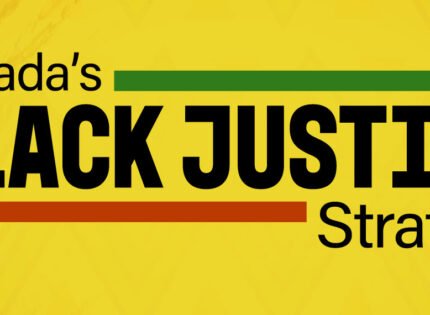Following the W orld War II, Canada was no longer made up of its two ethnocultural groups, French and English, but instead by polyethnicity, or many ethnic groups.
orld War II, Canada was no longer made up of its two ethnocultural groups, French and English, but instead by polyethnicity, or many ethnic groups.
From that time on, the country has actively accepted and adopted multiculturalism, culminating with the passage of Bill C 93, an act for the preservation and enhancement on July 12, 1988 in the House of Commons.
While the multiculturalism experience has been much depicted and represented as a celebration of ethnicity where different cultural groups share their customs and learn from each other, it is not all it has been hyped to be.
Truth be told, without appearing in any way bold, multiculturalism segregates rather than integrates.
In 1973, following the example set by Canada two years earlier, Australia adopted what was said to be a “multicultural” social policy, denoting a virtual U-turn in the way in which new immigrant populations had been received until that point.
The reshaping of Australia that its former prime minister John Howard undertook when he won office in 1996 rested on the rejection of multiculturalism.
Spain’s ex-prime minister Jose Maria Aznar reached the same
conclusion about multiculturalism, not to mention the same expressed sentiments from France’s former prime minister Nicolas Sarkozy, and Britain’s David Cameron.
At a party convention in 2010, German Chancellor Angela Merkel, attracted praise from all over the world for her refugee policy. She was even Person of the Year by Time Magazine and the Financial Times newspaper.
However, at the very same convention, the speech that followed,
may have surprised supporters of her policies: “Multiculturalism leads to parallel societies and therefore remains a ‘life lie, or a sham, ‘’ she said, before adding that Germany may be reaching its limits in terms of accepting more refugees.
Former British Prime Minister Tony Blair said the roots of violent Islamism are not “superficial but deep” and could be found “in the extremist minority that now, in every European city, preach hatred of the West and our way of life.”
Despite the fact that the Multiculturalism Act of 1988 has moved beyond simple politics into general practice in Canadian society, Canada has not always been the ideal model of immigrant integration.
The migratory patterns and obvious circumstances that Canada is facing have
changed. Canada has recently redoubled her efforts to help 20,000 Afghans refugees—who remain vulnerable wherever they go—find safety here. According to minister of Immigration, Refugees and Citizenship the Honourable Marco E. L. Mendicino: “The situation in Afghanistan is heartbreaking, and Canada will not stand idly by.”
It is obvious that the notion of multiculturalism reveals critical disjunctures between ideology and practice.
Multiculturalism —the embrace of an inclusive, diverse society, once seen as an answer to social ills, may now be the cause of them.
At its extreme the theory asserts that assimilating immigrants from non-western countries is morally wrong because it presumes the superiority of western culture.
Assimilation thus amounts to coercion.
Liberal societies must accept not only the immigrants but also their cultures. Indeed, the assertion of those immigrants’ cultural values becomes a fundamental right.
Many saw multiculturalism——as an answer to Europe’s social problems. Today, a growing number consider it to be a cause of them.
An acrid aftertaste of fraudulence persists in any multicultural society. Difference is acceptable within highly defined limits. The deception is not just the obvious failures: racist police forces, or inequality of opportunity, or the fact that Canada welcomes talented immigrants into the
country and then makes it nearly impossible for them to use those talents.
There is also the matter that immigrants are never exposed to any Indigenous culture as a living force.
Both the word and the system called multiculturalism is “white.” Identity politics points out the basic contradiction of multicultural society and the hypocrisy of its universal claims.
Canada claims diversity, but it must be on her own terms. Racial tension is higher in multicultural societies.
Conclusively, when Canada passed legislation making multiculturalism an official characteristic, the underlying hope was that it would attract immigrants to celebrate their native cultures while adopting the liberal ethos of their new country.
(The Liberals, and later the Tories, also regarded multiculturalism as
a vote-grabbing mechanism, but that is another story)
As Canada welcomes the new refugees, it should not be forgotten that the attacks on American soil on September 11, revealed both the flaws and the failures of multiculturalism.
“Some of the practices allowed in the name of multiculturalism are fundamentally in contravention of western values,” says Muslim activist and scholar Farzana Hassan, the author of two books calling for Islam’s reformation, ‘Prophecy and the Fundamentalist Quest of Islam’ and ‘Islam,
Women and the Challenge of Today.’
“We have this abusive multiculturalism now, and it has become the West’s Achilles heel.”
Canada is losing out because it drank the Kool-Aid of multiculturalism,” says Salim Mansur, a political scientist at the University of Western Ontario and the author of a newly published book, ‘Delectable Lie: A Liberal Repudiation of Multiculturalism.’
“This has profoundly weakened the country in its ability to get new immigrants to adopt Canadian values. The historical legacy of multiculturalism leads many immigrants to no longer make the effort to become Canadian.”
Salma Siddiqui, the vice-president of the Canadian Muslim Congress, echoes the same argument, saying “multiculturalism is faulty in that it has created conditions that make assimilation (of immigrants) hard. It’s not just failing Muslims immigrants. It’s failing all immigrants.”
The worm embedded in the doctrine of multiculturalism is the lie that all cultures are worthy of equal respect and equally embracing of individual freedom and democracy.
Pierre Trudeau’s government formulated multiculturalism as a way to dilute Quebec nationalism and more generally to promote tolerance in an increasing pluralistic and diversely populated country — “a feel-good public pronouncement that would do no harm. ”
No one gave any thought to its long-term consequences. Instead, multiculturalism morphed into a decidedly anti-western posture. Canada is allowing the importation of cultural ascriptions and
practices that are inimical to liberal traditions. Compounding this sad state of affairs is the fact that so many opinion-makers, politicians and otherwise secular liberals are ignoring this.
Once the newcomers attain positions of influence they will ensure that no philosophy or ideology can flourish other than the one they want. I am laying no claim to being a harbinger of doom, but eventually such a move will spell the demise of our nation.
The question up for grabs is whether or not Canada has recognized the likely forebodings.
Granted, multiculturalism has not yet done the damage in Canada that it has in America and certain western European countries — such as England, France and Germany — could it have finally arrived, and a nation now awaits its incubation?
Aleuta continua
The struggle continues.















